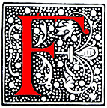[Published with the permission of The Trollope Society]
 or his last excursion to his fictional county, Trollope chose to centre the story on a character first encountered in Framley Parsonage six years previously, the penniless Reverend Josiah Crawley, Perpetual Curate of Hogglestock. As the book opens the Reverend has been accused of stealing a cheque, yet after many twists and turns in the plot, he turns out to be entirely innocent. Trollope did not have to look very far for a real-life model upon whom to base his portrait: noble-minded, religious, arrogantly revelling in his poverty in a half-mad way, Josiah Crawley was partly based on the author's own father. Yet, like Fanny Trollope, Mrs Crawley endeavours to maintain in her children a certain respect for their crazed father. Although Trollope did not care for the way in which he ultimately proved Crawley's innocence, he conceded: 'I claim to have portrayed the mind of the unfortunate man with great accuracy and great delicacy.
or his last excursion to his fictional county, Trollope chose to centre the story on a character first encountered in Framley Parsonage six years previously, the penniless Reverend Josiah Crawley, Perpetual Curate of Hogglestock. As the book opens the Reverend has been accused of stealing a cheque, yet after many twists and turns in the plot, he turns out to be entirely innocent. Trollope did not have to look very far for a real-life model upon whom to base his portrait: noble-minded, religious, arrogantly revelling in his poverty in a half-mad way, Josiah Crawley was partly based on the author's own father. Yet, like Fanny Trollope, Mrs Crawley endeavours to maintain in her children a certain respect for their crazed father. Although Trollope did not care for the way in which he ultimately proved Crawley's innocence, he conceded: 'I claim to have portrayed the mind of the unfortunate man with great accuracy and great delicacy.
For this last tale, Trollope calls back some of his best-loved characters: Johnny Eames unsuccessfully tries to woo Lily Dale; Mrs Proudie locks horns, and finally meets her match, with Mr Crawley and Dr Tempest; Major Henry Grantly, first met as a boy in The Warden and Barchester Towers, falls in love with Grace Crawley much against the wishes of the Archdeacon, although father and son are reconciled by the closing chapters.
The author reserved his greatest surprise, however, for his most famous character, Mrs Proudie. It has often been told how Trollope, writing this novel in the drawing room of the Athenaeum Club, was prompted to kill off the formidable lady upon hearing two clergymen calling his Barchester characters tired and overfamiliar. But it is worth noting that he had already been similarly attacked for this in the Saturday Review, for both Framley Parsonage and The Small House at Allington; so it is highly likely that Mrs Proudie's death had been planned some time earlier. Whatever the motives, the chapter describing Mr Thimble's discovery of Mrs Proudie's body, upright, one arm clasped around the bedpost, with her eyes wide open, is a tour-de-force; even in death Mrs Proudie dominates. Trollope, by all reports, regretted killing her off: 'I have never dissevered myself from Mrs Proudie, and still live much in company with her ghost'. But he had already begun to concentrate instead on the Pallisers, and was also concerned with resigning from the Post Office in order to devote himself to writing. In letting go of Barsetshire, and his favourite characters, he was making conscious changes in his own life. He said of The Last Chronicle of Barset that 'I regard this as the best novel I have written ... there is a true savour of English life all through the book'.
Related Material
- On the changing role of women over the course of the Barchester series
- The Fall and Rise of the Pastoral: The Small House at Allington and The Last Chronicle of Barset
- The Last Chronicle of Barset incorporates the urban world of London into the pastoral
Last modified 1 October 2014